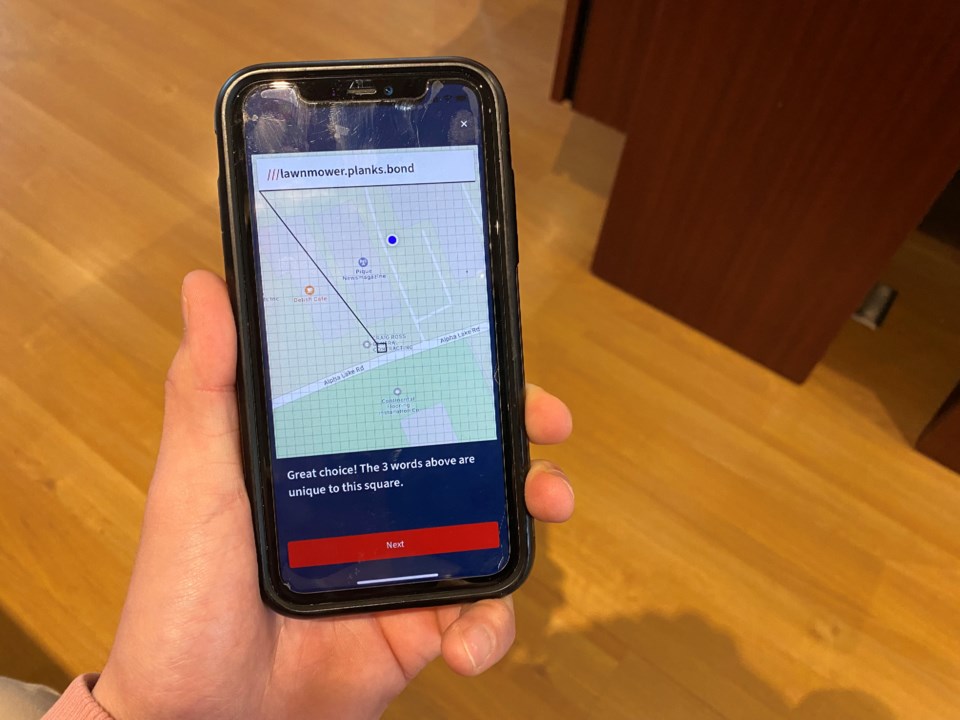Earlier this month, the geolocation app What3Words made the news when a North Vancouver RCMP dispatcher promoted its use to anyone venturing into the backcountry.
This proved to be a controversial opinion as search and rescue groups from up and down the Sea to Sky corridor, including North Shore, Squamish and Whistler, quickly spoke out against using the app, stating that calling 911 is still the preferred method to use if one finds themselves in need of assistance.
“What3Words is a good app,” said president of Whistler Search and Rescue (WSAR) Brad Sills. “It’s certainly simple to use, they use it in urban areas for police, fire and ambulance, it works quite well. But the problem with the search and rescue application is it puts another reporting party between us and the person that needs help.”
The What3Words app divides the world into three-metre squares and assigns each a combination of three random words that can be used by first responders to locate the user’s exact position. However, according to Sills, just knowing a location isn’t enough information for SAR teams to do their job properly.
“When all we have is a location and a call for help, we don’t know what we are going to,” he said. “Are we going to a medical emergency? Is it just somebody that needs a little help, like some verbal assistance? Is it an avalanche? Is it a grizzly bear [incident]? I mean most of our stuff is helicopter born, so we need to know what we are going to.”
However, according to Sills, WSAR will still use the app if they get a notification from it, but Sills believes that calling 911 is still the best option because it lets first responders speak to the person in need of assistance directly and get more information on the rescue team’s best course of action.
“Usually when a subject calls, we’ll call them back and get them to drop a pin and then we’ll know exactly where they are at. And if not, we’ll get them to go to their compass app and they can read off the coordinates and then they know we are coming,” said Sills. “The problem with What3Words is that people push them and if they don’t hear back instantly then they start moving. Then we don’t find them and then it just gets worse and worse because there is no communication.”
Whistler RCMP sergeant Gareth Bradley said police will be following the lead of the local SAR team and are also encouraging people not to use the app, as it is “just an extra step.”
“There are only three agencies that can call out Search and Rescue: BC Coroners Service, BC Ambulance and the RCMP. The app does not call out search and rescue directly and this could be a misconception of people who use the app,” said Bradley in an emailed statement.
“The RCMP and search and rescue already have technology in place that is able to produce better results than an [Apple] or Android app. We already complete the necessary steps in the first instance of someone being reported missing.”
While Bradley has not used the app personally, he said it is his understanding that the app can be viewed offline but won’t send a message unless it is within cell service, making the reliance on the app dangerous for hikers.
“Some places in the Sea to Sky do not have cell service and this could lead to people having a further sense of false security,” he said. “We would recommend if they are travelling the backcountry they obtain an emergency transponder with a GPS, satellite or personal locator beacon.”




